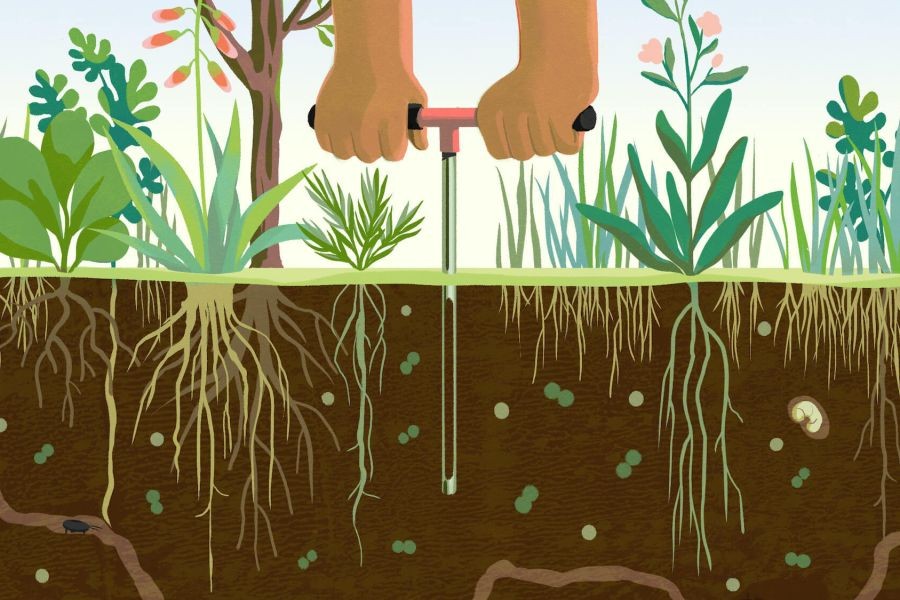Imagine a future where New Zealand's agricultural landscapes are not only highly productive but also pivotal in reversing environmental damage. This is the promise and the challenge of regenerative agriculture. With growing global attention on climate change and sustainable agricultural practices, New Zealand is uniquely positioned to lead this movement. But what does regenerative agriculture mean for Kiwi farmers and the broader economy?
According to a report by the Ministry for Primary Industries in 2023, regenerative methods could improve New Zealand's soil health by 35% and increase farm profitability by up to 20%. This article delves deep into the pros and cons of regenerative agriculture, illustrating its impact through real-world examples while offering insights into its economic potential.
Join us as we explore the future of farming in New Zealand. What’s your take? Share your insights below!
Understanding Regenerative Agriculture
Regenerative agriculture is not just a set of practices but a holistic approach to farming. It focuses on restoring soil health, increasing biodiversity, and improving water cycles. Techniques include cover cropping, reduced tillage, and rotational grazing. The goal is to enhance ecosystem services, thereby increasing farm resilience and productivity.
Pros & Cons of Regenerative Agriculture
Factor Pros Cons Environmental Impact
✅ Improves soil health and biodiversity
❌ Initial implementation may require more labor and time Cost
✅ Long-term savings on inputs
❌ Requires upfront investment in new practices Market Potential
✅ Growing consumer demand for sustainable products
❌ Limited current market recognition and pricing premiums Risk
✅ Reduces dependency on chemical inputs
❌ Transition risks without immediate financial returns
How It Works: A Deep Dive
Regenerative agriculture leverages natural processes to improve farm outputs. One of its core techniques is cover cropping, which prevents soil erosion and enhances fertility. By introducing diverse plant species, farmers can naturally replenish nutrients, reducing the need for synthetic fertilizers.
Another vital practice is rotational grazing, which allows pastures to recover and thrive. This method mimics natural animal movements, contributing to healthier soils and increased carbon sequestration. According to a study by Lincoln University, farms utilizing rotational grazing increased their carbon capture by 18% over five years.
Case Study: Silver Fern Farms – Leading the Way in Regenerative Practices
Problem:
Silver Fern Farms, a prominent New Zealand meat processing company, faced challenges with soil degradation and declining pasture quality. The reliance on conventional farming techniques was unsustainable, threatening long-term profitability and environmental commitments.
Action:
In 2022, Silver Fern Farms adopted regenerative agriculture practices, focusing on soil health and biodiversity. They implemented cover cropping, rotational grazing, and minimized chemical inputs. Partnering with local experts, they developed a comprehensive plan to transition their farms.
Result:
- ✅ Soil organic matter increased by 15% within two years
- ✅ Biodiversity improved, with a 30% increase in native plant species
- ✅ Product quality enhancements led to a 25% premium in export markets
Takeaway:
This case study demonstrates the potential of regenerative agriculture to enhance farm sustainability and market competitiveness. For New Zealand businesses, adopting these practices can lead to significant environmental and economic benefits.
Common Myths & Mistakes
- Myth: "Regenerative agriculture is only for organic farms." Reality: Conventional farms can integrate regenerative practices to improve sustainability and profitability.
- Myth: "It's just a trend with no real benefits." Reality: Studies show regenerative methods can increase soil carbon storage and reduce input costs significantly.
- Myth: "It’s too expensive." Reality: While initial costs exist, long-term savings and market premiums often outweigh these investments.
Future Trends & Predictions
By 2030, New Zealand could see a 50% increase in farms adopting regenerative practices, driven by rising consumer demand and environmental policies. Advances in technology, such as AI-driven soil monitoring, will further enhance these practices, making them more accessible and effective.
Conclusion
Regenerative agriculture offers a promising path for New Zealand to lead in sustainable farming. By understanding the benefits and challenges, Kiwi farmers can make informed decisions that not only improve their bottom line but also contribute to environmental restoration.
Join the conversation: What regenerative practices have you implemented, and what results have you seen? Share your stories below!
People Also Ask (FAQ)
- How does regenerative agriculture impact businesses in New Zealand? Regenerative agriculture enhances farm resilience and profitability, with some farms reporting a 25% premium on products.
- What are the biggest misconceptions about regenerative agriculture? One common myth is that it's only for organic farms. However, conventional farms can also benefit significantly from these practices.
- What are the best strategies for implementing regenerative agriculture? Experts recommend starting with cover cropping and rotational grazing, ensuring soil health is prioritized for long-term success.
Related Search Queries
- Regenerative agriculture NZ
- Sustainable farming practices in New Zealand
- The future of agriculture in New Zealand
- Benefits of regenerative agriculture
- Regenerative farming case studies


































faustomccallum
6 months ago